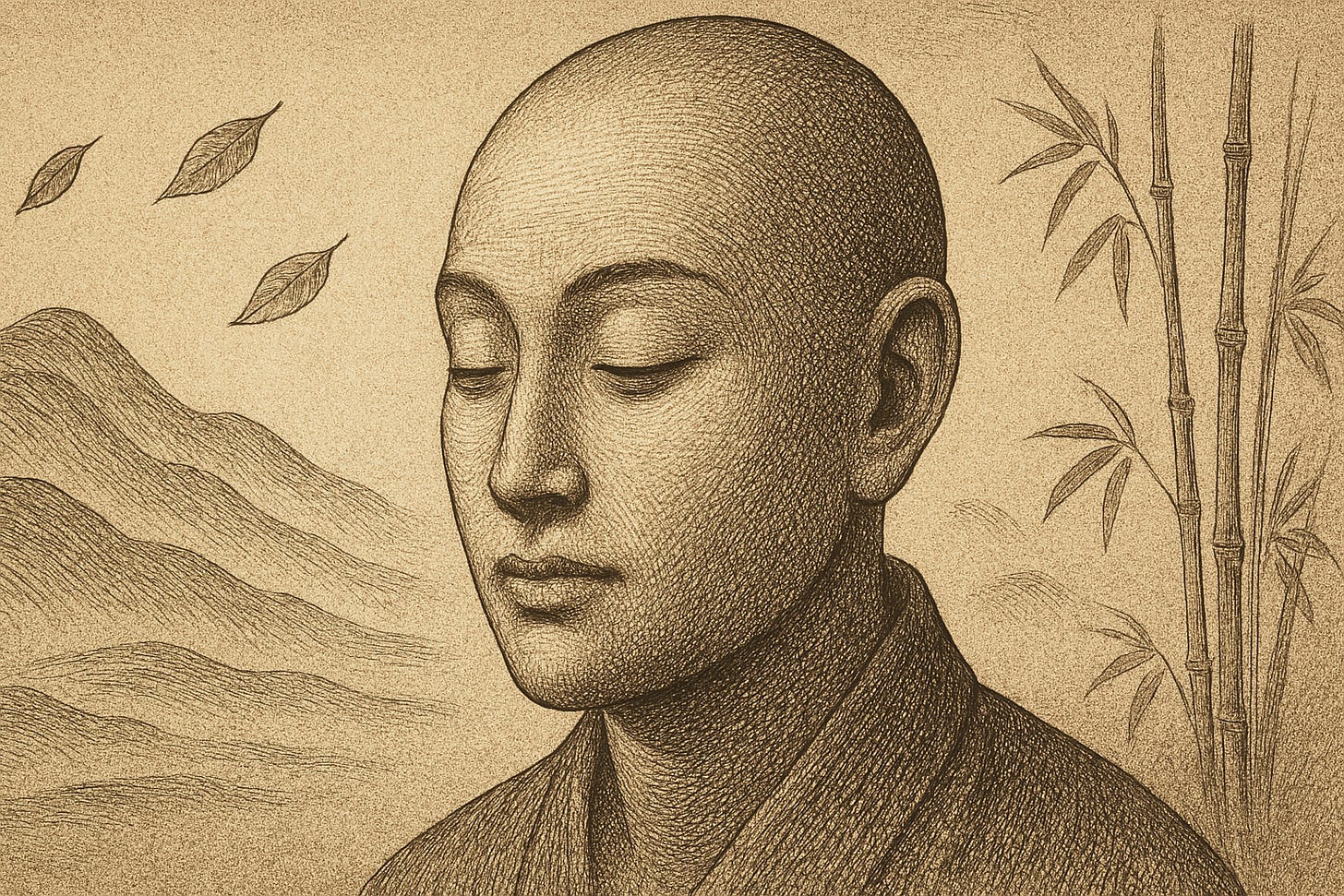7 Japanese Mental Models That Rewire Your Brain for Calm and Clarity
The Most Dangerous Thing Is Getting Good at Something You Never Wanted - Nathan W. Morris
One day, a professor at a university visited a Zen master to study Zen.
As the master poured tea, he kept pouring even when the cup was full. Tea was spilled everywhere.
The instructor shouted, "It's full! Nothing more will fit in!"
The master answered calmly: "Just as this cup is full, your mind is full. How can I teach you unless you first empty it?"
That lesson stands. Today, we have a hectic world and our minds are filled with stress and noise. Clarity is not the result of more internet input but from different thinking.
Here are 7 Japanese mental models to help you think clearly and calmly
1. Ikigai
The internet calls it your reason for being.
Writing used to be mine. Still is, most days. Except the days I make $5.42 on a post that took 5 hours. Those days, I start wondering if my reason for being should be something a little more….lucrative. Like accounting. Or organized crime.
Do not mistake Ikigai for passion. Passion fizzles. Ask anyone who started a novel in 2018 and hasn’t opened the file since.
Ikigai is Just four quiet questions:
What do you love?
What are you good at?
What does the world need?
What can you actually get paid for?
You don’t find yourself by trying to be consistent.
You find yourself by paying attention to what makes you come alive right now.
2. Kaizen
Kaizen is a small improvement over time. Small, steady improvements. Small increments that add up over time.
Like when you organize your desk so pencils are within reach of your left hand, and then out of nowhere you feel you can run a Fortune 500 now.
Except that you don't. You just answer emails and wonder what could have been your life.
Because:
A lot of us are quietly panicking.
Self-help hoarding doesn’t count as growth
Bullet journaling won’t cure regret
Most of us rearrange pens instead of our lives
Pretending you’re fine doesn’t make you fine
We devour productivity blog posts like they're the Bible. Give journaling, bullet points, and Pomodoro a try. We organize our phone apps into folders labeled "focus" and "tools" and "God help me get my life together."
Kaizen is not fooling yourself into a good mood by tricks.
Make a difference today, another tomorrow, and don't give up on yourself.
It's unsexy, slow, and not very Instagrammable.
3. Shikata ga nai + Ma
Shikata ga nai is "it cannot be helped."
There are things you can’t fix. People who will never apologize. Algorithms that hate you personally.
Life gives you a pile of rocks. Shikata ga nai is, you stop yelling at the rocks for being there and start figuring out if you can build something with them.
Not everything has a fix
Not all problems are yours to solve
Silence can say more than action
Control is a myth with great marketing
There is power in sitting with that truth.
There is room in the middle ground of effort and results where you can breathe.
4. Wabi-Sabi
When You Feel Like You're Too Flawed to Move Forward
Wabi-sabi says: beauty is in the broken bits.
Your flaws are features
Cracks tell stories
Enough is a myth
Highlight your mess
We are in a world that teaches us to fix ourselves. Better yourself. Optimize.
I used to hate my laugh. Thought it was too loud. Once tried to laugh more “elegantly.” Whatever that means.
Now I laugh like a dying goat and scare small children. Feels honest.
5. Zanshin
Be Present…. Even After the Action Is Completed
Zanshin is what you then do after the arrow hits the target.
It's the stillness that follows the strike. The attention you keep, even when the action is over.
Most individuals are terrible at it.
We speed through to-do lists and courses, then we collapse in a heap of caffeine and screen scrolling.
We're done writing the thing and release it right away without proofreading because we just want to be done, done, done (I bet you have done that at least once if you write on medium).
So yeah, post your piece. Finish your call. Hit publish.
7. Yugen
Not Everything Needs to be Understandable in Order to be Felt
Yugen is hard to define. Which is sort of the point.
There are things that cannot be tweeted. Or bullet-pointed. Or summarized into a Reel with background lofi.
Yūgen is the term for such a sentiment.
“A crow
has settled on a bare branch —
autumn evening.”- Basho
That’s it. That’s the poem. Three lines. One crow. One branch. But if you can feel the stillness, nostalgia. The loneliness. The fading warmth. That’s yugen.
It’s not sadness. It’s not joy. It’s like the space between them when you’re not sure what you feel.
In relatable terms, it’s the lump in your throat when you hear a song you forgot you loved.
Like staring out the window at 3 AM, not knowing why you’re awake, but not minding it either.
Wait a Sec
I share insights like this every 2-3/week—ones that actually change how you think. Don’t miss the next one.
Join 2050+ readers.

Thanks for your time.






Sorry for the mistake, there are actually 6 topics, not 7.
This one would give you 7. Ichigo Ichie (一期一会) is a beautiful and profound Japanese phrase that translates roughly as: One time, one meeting”
or“This encounter is a once-in-a-lifetime opportunity.”